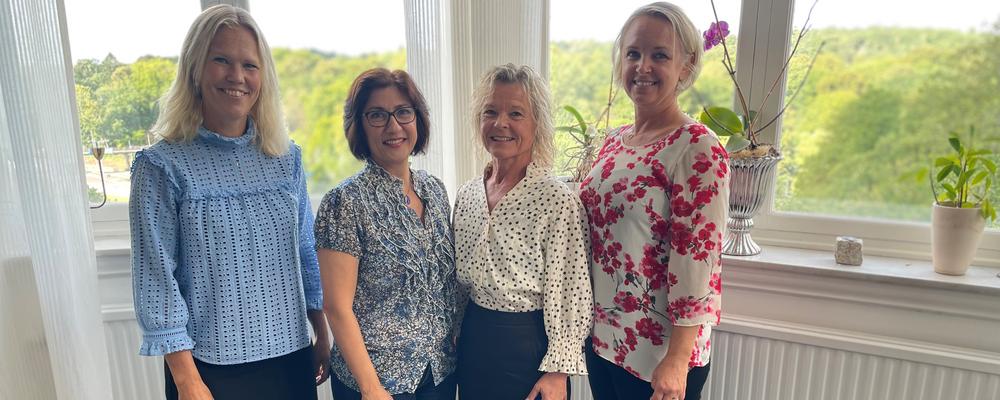–It's incredibly exciting and a great honour," says Kiana Kiani, senior lecturer and doctoral student at the Institute of Health and Care Sciences. We didn’t dare to hope for this, so we’re very pleased!
–Yes, it’s fantastic to have our work validated like this," adds Kerstin Ulin, senior lecturer and associate professor. "We’ve put in a lot of time and effort, so it’s great to see it recognised in this way."
–It’s a wonderful confirmation that we’re doing something important," says Anneli Ringblom, senior lecturer and doctoral student. –We can clearly see that students are achieving better results and are much more successful in both their studies and their clinical placements. We hope they are now better prepared to work in the Swedish healthcare.
Hopes for Wider Impact
–We hope that this recognition will lead to further positive effects, not just for us, but for others as well, says Petra Brembeck, senior lecturer. We’ve tried to share our insights at higher education conferences and within networks, and now the award gives us additional opportunities. We hope the prize money will help ensure that our model benefits many others. It’s crucial to spread the model we’re working with so that it doesn’t just remain a one-off initiative, but rather becomes a useful approach.
Language Barriers Caused Problems in Clinical Placements
The method focuses on language development within the learning activities that nursing students typically go through, both in practice and theory, in a healthcare context that is often complex, explains Kiana Kiani.
–The impetus for this initiative was that three students failed their clinical placement due to deficiencies in communication skills," says Kerstin Ulin. And it’s important to remember that this group is very knowledgeable theoretically; they are already trained nurses. Despite a compulsory term of Swedish studies, we noticed that many still faced linguistic challenges. We recognised this and therefore developed the pedagogy further for this group.
A Complex Language in Healthcare
–The language within healthcare is complex, with specific terminology and jargon used in different wards says Anneli Ringblom. Students need to manage both medical terminology and the informal language. Along the way, we’ve also identified just how much slang and various expressions are used, which adds to the complexity of the language.
Language Workshops as a Method
–A key method has been to organise workshops where students are guided on how to study and develop their vocabulary and terminology, says Petra Brembeck. We use patient cases, which have proven to be an effective tool. An important aspect is also the exchange of knowledge between students, where those who are stronger linguistically can help others.
–When the project was up and running, we quickly saw measurable effects, says Kiana Kiani. More students passed their exams and more students completed their clinical placements without issues.
–We believe this approach could also be beneficial in other undergraduate education, where similar language challenges exist, notes Kerstin Ulin. It benefits both the students and us as educators when more students complete their studies on time. Better success rates also mean fewer resits and additional assessments to manage.
–We’ve also seen that students develop a greater confidence in themselves and their abilities, which leads to better performance. It’s also a very enjoyable way of working says Petra Brembeck. It creates a more relaxed learning environment when we work in workshops, and students become closer as a group. Students feel more comfortable asking about and discussing words they don’t understand, which leads to positive ripple effects and a more cohesive group says Kerstin Ulin.

